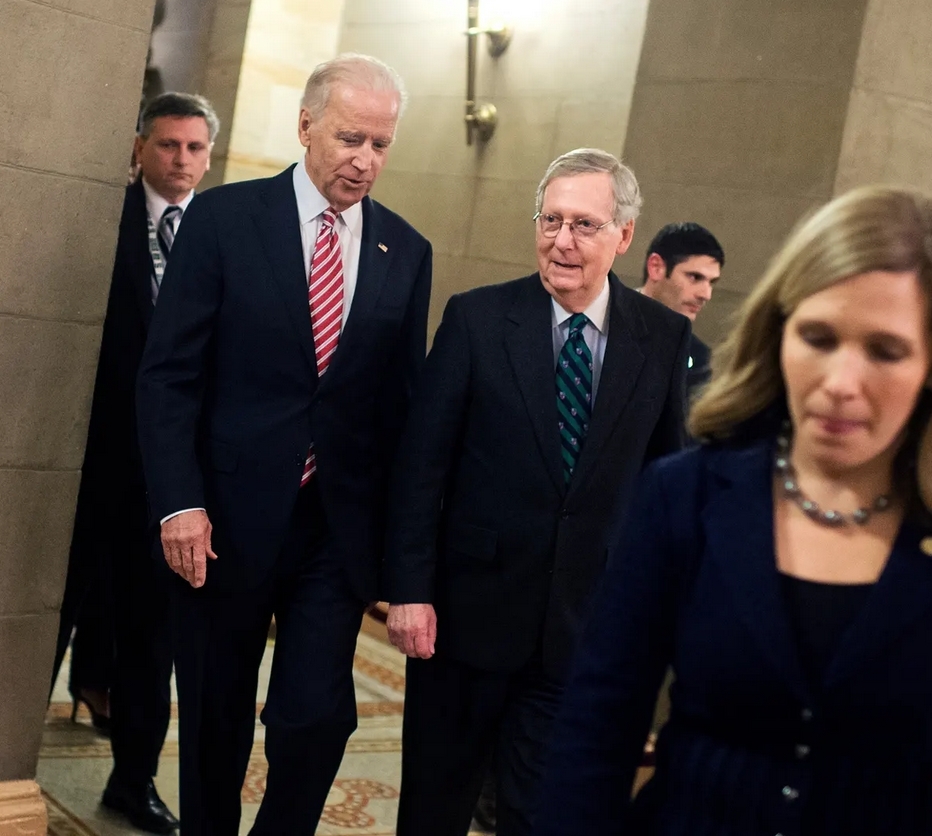In recent times, concerns surrounding the age of politicians have come into the spotlight. With prominent figures like Top U.S. Senate Republican Mitch McConnell and President Joe Biden experiencing health scares on national platforms, the question arises: should old age be a significant factor when it comes to making big decisions in the political space?
Health Scares and Their Implications
Mitch McConnell’s recent freeze-up during a press conference raised eyebrows and highlighted the potential risks associated with advanced age in politics. The 81-year-old Kentucky lawmaker stood still and silent for 21 seconds before walking away, only to return 12 minutes later, reassuring reporters that he was “fine.” This incident follows an earlier health scare in which McConnell tripped and suffered a concussion, minor rib fracture, and rehabilitation in April.
President Joe Biden, at 80, is the oldest person to occupy the Oval Office. He too has faced health-related concerns, most notably when he tripped and fell during a graduation ceremony at the U.S. Air Force Academy in Colorado. While he quickly recovered, such incidents raise questions about the physical demands of holding the highest office in the nation.
Public Concerns and Respect for Democracy
A majority of Americans have expressed concerns about the age of their elected representatives, with a Reuters/Ipsos poll revealing that 61% believe members of Congress are too old to represent the American people adequately. As citizens, we entrust politicians to make critical decisions on our behalf, and their health and well-being can impact their ability to do so effectively.
However, age alone cannot be the sole determining factor in evaluating political leaders. Democracy grants people the right to vote, and if they choose to elect older candidates, it is essential to respect the democratic process. Moreover, experience and wisdom are often valued in politics, attributes that can come with age.
Term Limits and Retirement Age
Considering the delicate balance between respecting democracy and ensuring effective governance, the idea of implementing term limits or a retirement age for politicians has been suggested. By imposing term limits, we inject fresh ideas and agendas into our political landscape, preventing stagnation and ensuring continuous evolution.
Retirement age requirements can help safeguard against potential health risks impacting decision-making. However, striking the right balance to preserve experience while avoiding any compromise to the well-being of politicians remains a challenge.
Tough Decisions Ahead
As a country, we face difficult decisions on how to handle age in politics. Balancing the well-being of politicians with the demands of their roles is essential to ensuring effective governance. Striking a balance between respecting democracy and implementing measures to address health concerns can lead to a more dynamic and resilient political landscape.
Ultimately, the path forward must be carefully considered, involving discussions and collaborations from all sides. By acknowledging the importance of health and performance in politics, we can ensure a bright future for our nation and its governance. The decisions we make today will shape the political landscape for generations to come.

